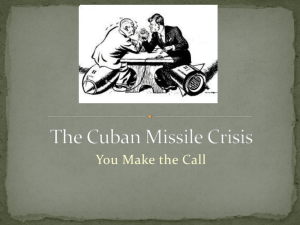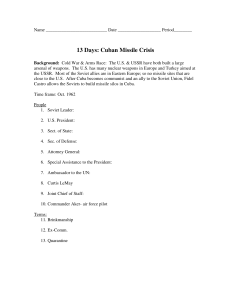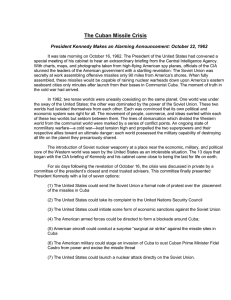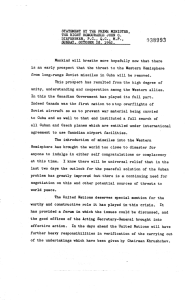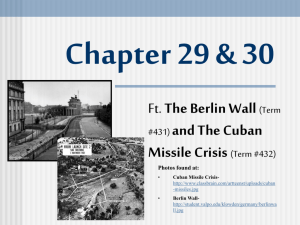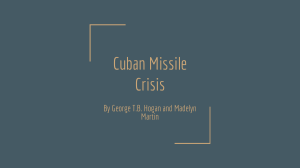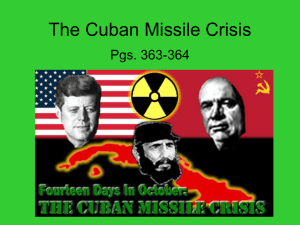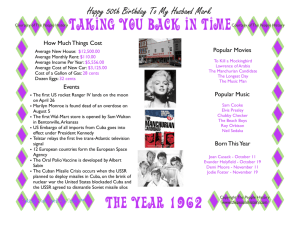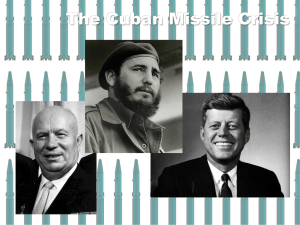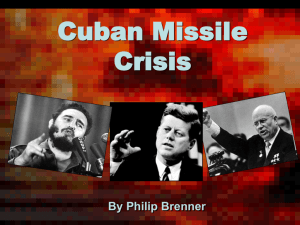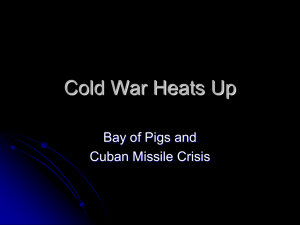File
advertisement
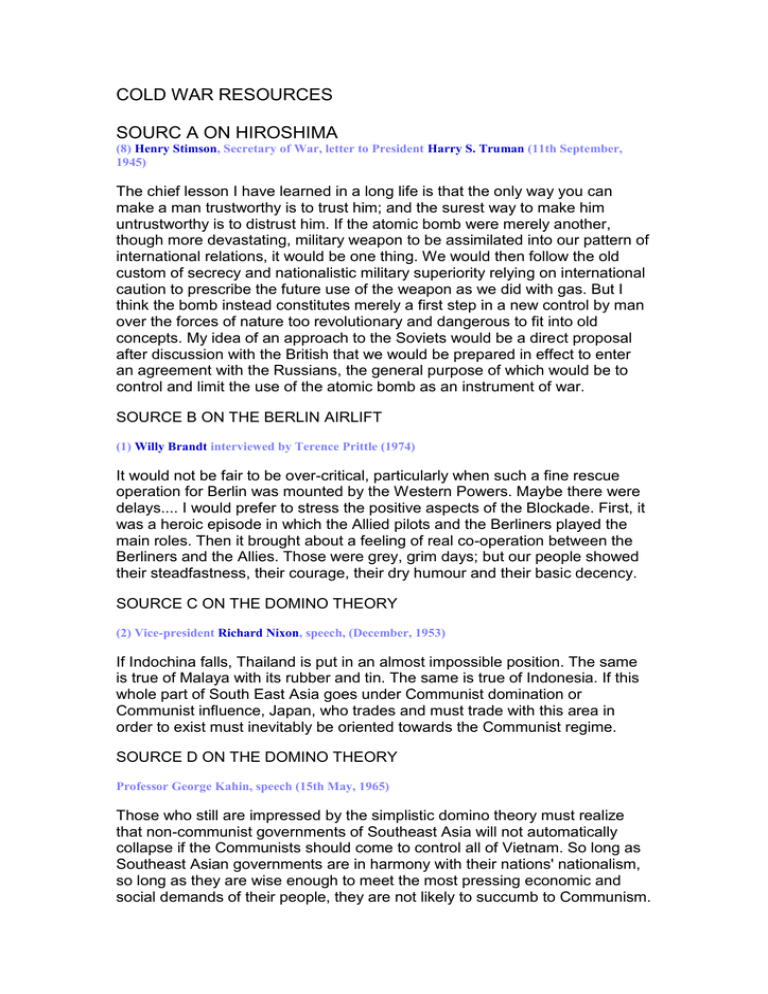
COLD WAR RESOURCES SOURC A ON HIROSHIMA (8) Henry Stimson, Secretary of War, letter to President Harry S. Truman (11th September, 1945) The chief lesson I have learned in a long life is that the only way you can make a man trustworthy is to trust him; and the surest way to make him untrustworthy is to distrust him. If the atomic bomb were merely another, though more devastating, military weapon to be assimilated into our pattern of international relations, it would be one thing. We would then follow the old custom of secrecy and nationalistic military superiority relying on international caution to prescribe the future use of the weapon as we did with gas. But I think the bomb instead constitutes merely a first step in a new control by man over the forces of nature too revolutionary and dangerous to fit into old concepts. My idea of an approach to the Soviets would be a direct proposal after discussion with the British that we would be prepared in effect to enter an agreement with the Russians, the general purpose of which would be to control and limit the use of the atomic bomb as an instrument of war. SOURCE B ON THE BERLIN AIRLIFT (1) Willy Brandt interviewed by Terence Prittle (1974) It would not be fair to be over-critical, particularly when such a fine rescue operation for Berlin was mounted by the Western Powers. Maybe there were delays.... I would prefer to stress the positive aspects of the Blockade. First, it was a heroic episode in which the Allied pilots and the Berliners played the main roles. Then it brought about a feeling of real co-operation between the Berliners and the Allies. Those were grey, grim days; but our people showed their steadfastness, their courage, their dry humour and their basic decency. SOURCE C ON THE DOMINO THEORY (2) Vice-president Richard Nixon, speech, (December, 1953) If Indochina falls, Thailand is put in an almost impossible position. The same is true of Malaya with its rubber and tin. The same is true of Indonesia. If this whole part of South East Asia goes under Communist domination or Communist influence, Japan, who trades and must trade with this area in order to exist must inevitably be oriented towards the Communist regime. SOURCE D ON THE DOMINO THEORY Professor George Kahin, speech (15th May, 1965) Those who still are impressed by the simplistic domino theory must realize that non-communist governments of Southeast Asia will not automatically collapse if the Communists should come to control all of Vietnam. So long as Southeast Asian governments are in harmony with their nations' nationalism, so long as they are wise enough to meet the most pressing economic and social demands of their people, they are not likely to succumb to Communism. SOURC E ON THE CUBAN MISSILE CRISIS (A2) Andrei Gromyko, the Soviet Union's foreign secretary, book Through Russian Eyes: President Kennedy's 1036 Days was published in 1973. In the book Gromyko wrote about the background to the Cuban Missile Crisis. The United States over several years had established offensive military bases around the socialist countries and, primarily, near the USSR borders... the placement of medium-range effective Soviet missiles in Cuba was undertaken only after the United States ruling circles continually rejected proposals to remove American military bases, including missile sites, on foreign territory. SOURCE F ON THE CUBAN MISSILE CRISIS (A3) In 1984 Fidel Castro was interviewed by the American journalist, Tad Szulc. The journalist asked Castro why he was willing to allow Soviet missiles to be placed in Cuba. It was necessary to make it clear to the United States that an invasion of Cuba would imply a war with the Soviet Union. It was then that they proposed the missiles... We preferred the risks, whatever they were, of a great tension, a great crisis, to the risks of the impotence of having to await a United States invasion of Cuba. SOURCE G ON THE MARSHALL PLAN George Marshall, Secretary of State, speech at Harvard University (5th June, 1947) It is logical that the United States should do whatever it is able to do to assist in the return of normal economic health in the world, without which there can be no political stability and no assured peace. Our policy is directed not against any country or doctrine but against hunger, poverty, desperation, and chaos. Its purpose should be the revival of a working economy in the world so as to permit the emergence of political and social conditions in which free institutions can exist. SOURCE H ON MCCARTHYISM Daniel Fitzpatrick, St Louis Post-Dispatch (23rd February, 1947) SOURCE I THE TRUMAN DOCTRINE (2) President Truman, speech to Congress (12th March, 1947) At the present moment in world history nearly every nation must choose between alternative ways of life. The choice is often not a free one. One way of life is based upon the will of the majority, and is distinguished by free institutions, representative government, free elections, guarantees of individual liberty, freedom of speech and religion, and freedom from political oppression. The second way of life is based upon the will of a minority forcibly imposed upon the majority. It relies upon terror and oppression, a controlled press and radio, fixed elections, and the suppression of personal freedom. I believe that it must be the policy of the United States to support free peoples who are resisting attempted subjugation by armed minorities or by outside pressures.
